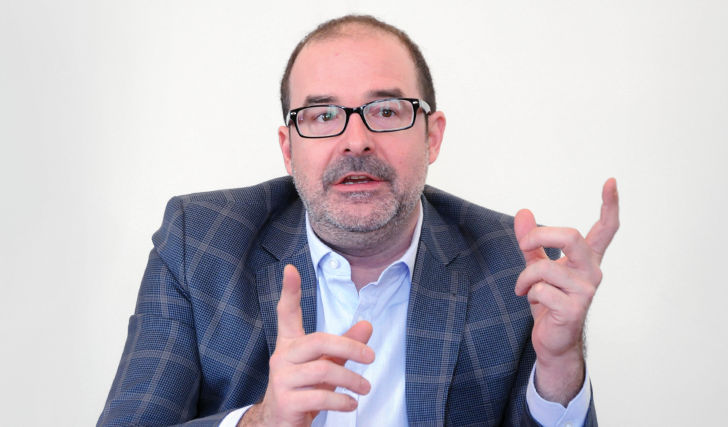In 2017, Humania Assurance increased its net income by 7.2 per cent over 2016 to $4.96 million. At $143.7 million, its insurance sales in terms of gross premiums are up 7.5 per cent in 2017 compared to 2016. Both the insurer’s group insurance and individual insurance sales experienced growth.
Humania also had a solvency ratio of 219 per cent, a rate of return on equity of 6.7 per cent and an increase in assets of 11.3 per cent.
"We delivered a series of exceptional accomplishments, given the financial and human resources of the organization. It's impressive what we can do with our little mutual in Saint-Hyacinthe," said Humania Assurance CEO Stéphane Rochon, opening the mutual insurer’s Annual General Meeting on April 12 in Beloeil, Quebec. The Insurance and Investment Journal attended the AGM.
To explain 2017’s good results, Rochon underlined Humania’s digital shift. In 2017, 58 per cent of Humania's individual insurance sales were completed online by independent advisors using the company’s technology platforms, he said.
Strong growth outside Quebec
He also praised Humania's development efforts outside Quebec. The outside Quebec sales team was present at the meeting, accompanied by its national sales director Michael J. Suska. "Most of our growth comes from outside Quebec. All products combined, sales outside Quebec account for 35 per cent of our new sales," said Rochon.
Chief Financial Officer, Marc Peliel, said that all segments contributed to sales growth in 2017, compared to 2016. He said that Humania's technology platforms, in particular that of the HuGO product, enabled the company to double individual life insurance sales. "This is a market where we had very little presence," said Peliel. "In group long-term disability, life and critical illness insurance, sales have increased by 55 per cent," he added.
Sales of travel insurance, on the other hand, grew more modestly. "The loss ratio is a little higher than expected, particularly in terms of the severity of claims processed," said Rochon. He added that the strategy of selling online travel insurance was very promising.
Aggressive competition in the group market
Rochon indicated that Humania’s group insurance portfolio under management grew by 10 per cent between 2016 and 2017, while it had seen a 50 per cent increase between 2015 and 2016. He explained that sales were extremely high, but that the business retention rate was below expectations in 2017.
"This is an extremely aggressive market where players are underpricing," he said. “This is not the road we are taking. We decided to focus our efforts on groups that give us a perspective of profitability."
The practice denounced by Rochon is when an insurer offers a group insurance plan at a lower entry price than it should be based on the experience of the group of employees. Some do this in order to undercut the competition.
Artificial intelligence lowers pricing
Rochon highlighted advisors’ high use of the HuGO individual insurance platform, which through leveraging artificial intelligence, has reduced underwriting time from several days to 45 minutes. The percentage of advisors (using the HuGO platform) who had used it more than once six months ago was 45 per cent. This had reached 63 per cent by the time of the AGM meeting, he said. "A few days ago, this rate was 60 per cent (the number stated in the annual report)," added Rochon.
More than 1,200 consultants from across Canada have used the platform. The insurer was able to complete more than 5,400 transactions. "The HuGO product has allowed us to position ourselves in a market we knew little about: term life insurance," said Rochon.
He said the much lower cost of issuing the policies allows Humania to reduce its unit cost and fight with the insurance giants. This reduction, he says, ranks the company in the top five best prices offered to customers aged 45 and under, for a term insurance amount of $1 million or less.
A product for 55-75 year-old clients
In 2018, the Board of Directors agreed to accelerate Humania’s digital shift, said Rochon, who is currently working on the development of an individual health insurance product that will target the population between 55 and 75-years-old. It will be called 5575.ca.
"We are digitizing old products to adapt them to the modern world and open new markets for our advisors. We believe in the babyboomer market, which represents 28 per cent of the Canadian population. This is the group whose use of the Web is growing fastest," he added.
Rochon also said that the first cohort of babyboomers to be retiring is also the first cohort that has been covered during its working life by group insurance, unlike the previous generation. "These people will want to have an extension of their group benefits," he said.








